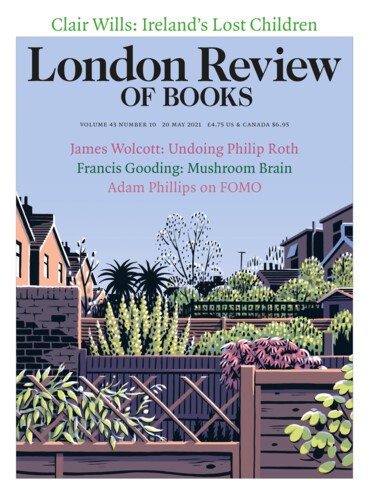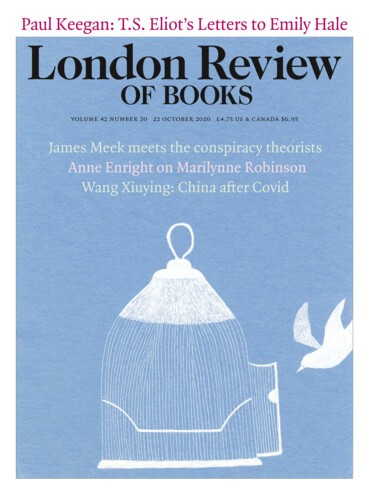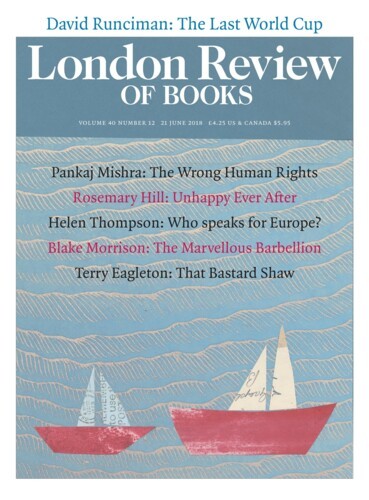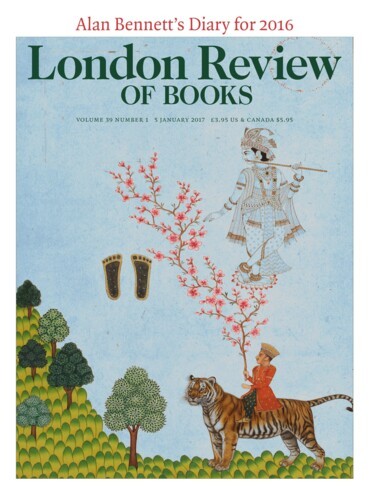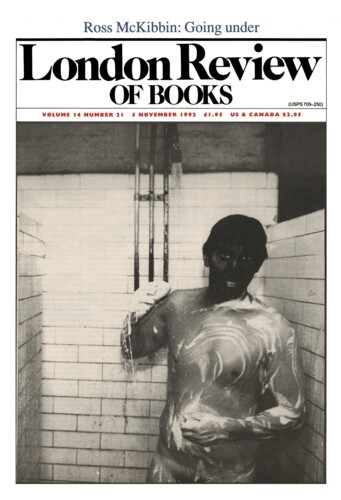At the V&A: ‘Bags: Inside Out’
Susannah Clapp, 20 May 2021
The best ever riff on bags was written by Lucy Ellmann in her novel Doctors and Nurses (2006). In swirling prose she attacks – as if just knocking it out – the essential points about these essential accessories. The quick character guide they offer: ‘Tiny shiny hand-held PODS for flighty ice maidens; galumphing CARPET-BAGS for the jilted and jaded’. The utter...
